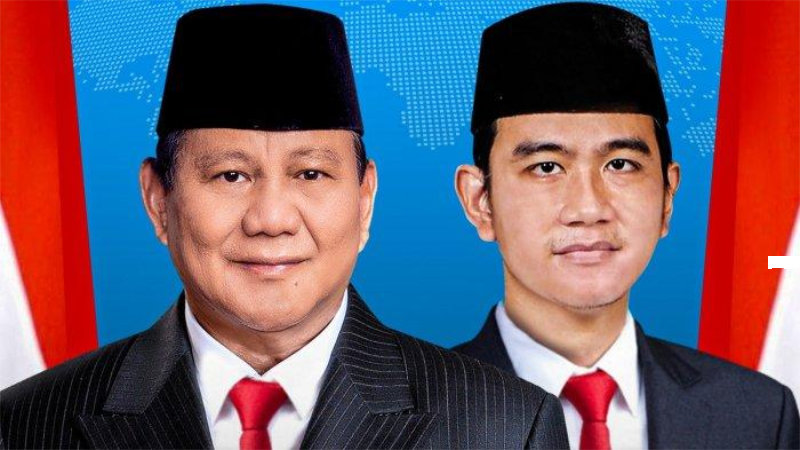On February 14, over 200 million Indonesians went to the polls to elect a new President, Vice President, and legislature. The world’s third largest democracy and largest Muslim majority nation on Australia’s northern border electing a new government should be front page news. But, besides a couple mentions in news bulletins and in op-ed pages, the media is predictably silent. Prime Minister Paul Keating said “no country is more important to Australia than Indonesia.” While New Zealand elections get the Antony Green treatment, the ignorance about Indonesia is a media failure and ignores the political realignment of Australia towards Asia.
At the time of writing, 66% of the vote has been counted. As forecasted by opinion polls, former Minister of Defence Prabowo Subianto has won a clear victory with his running mate Gibran Rakabuming. Beating two other tickets led by the former governors of Jakarta and Central Java, this is Prabowo’s third attempt at the Presidency after losing two elections to incumbent Joko Widodo.
Indonesia’s importance to Australia has ballooned since the 1980s. The former dictator Suharto was required for Hawke and Keating’s Asia Pacific Economic Cooperation (APEC) project to get off the ground, and Kevin Rudd predicted in his memoirs that its economy would surpass Australia’s during the 2020s. Currently, 45% of all international shipping passes through Indonesia. Australia’s dependence on Indonesian trade access alone drove Albanese to visit the nation in June 2022, just weeks after his election win. “We have to do more,” he told Indonesian officials citing a defence deal and expanded economic ties.
Even though increased ties and political understanding with Indonesia is essential, it must not come at the cost of a critical stance towards Indonesia’s and Prabowo’s human rights record. Widodo’s crackdown on drug smuggling which included the execution of two Australians in 2015 alongside other foreign nationals was a shocking miscarriage of justice. Those issues could get worse under Prabowo. He was dismissed from the military for allegedly torturing pro democracy protesters and kidnapping them alongside abuses in Papua and Timor Leste. Before becoming a minister in 2019, he was banned from entering the United States. Some experts think he has moderated his message in order to broaden his electoral appeal. His Instagram account is full of endearing photos with cats and modern dancers.
However, even more moderate optics do not detract from the continuing military campaign against West Papuan self-determination. Since the 1960s, the war Indonesia has waged to maintain control of the island has cost hundreds of thousands of civilian lives. The government has never allowed a free vote on independence, despite multiple international human rights organisations calling for one. While the Greens have called for a referendum on West Papuan self-determination, Labor and the Coalition have been silent on the issue in an attempt to placate Indonesia.
Knowledge of the election opens the door to a broader conversation about how Australia advocates for human rights around the world. The Labor government is capable of these discussions. The current line on China, “agree where we can, disagree where we must,” was a well founded departure from Coalition scare tactics. The new Indonesian government will be sworn in in October. When Widodo addressed the Australian parliament he was right when he said “Indonesia and Australia are destined to be close neighbours. We cannot choose our neighbours.” An Australia educated about its neighbour can make constructive, cautious judgements about engagement. The current silence is untenable.





